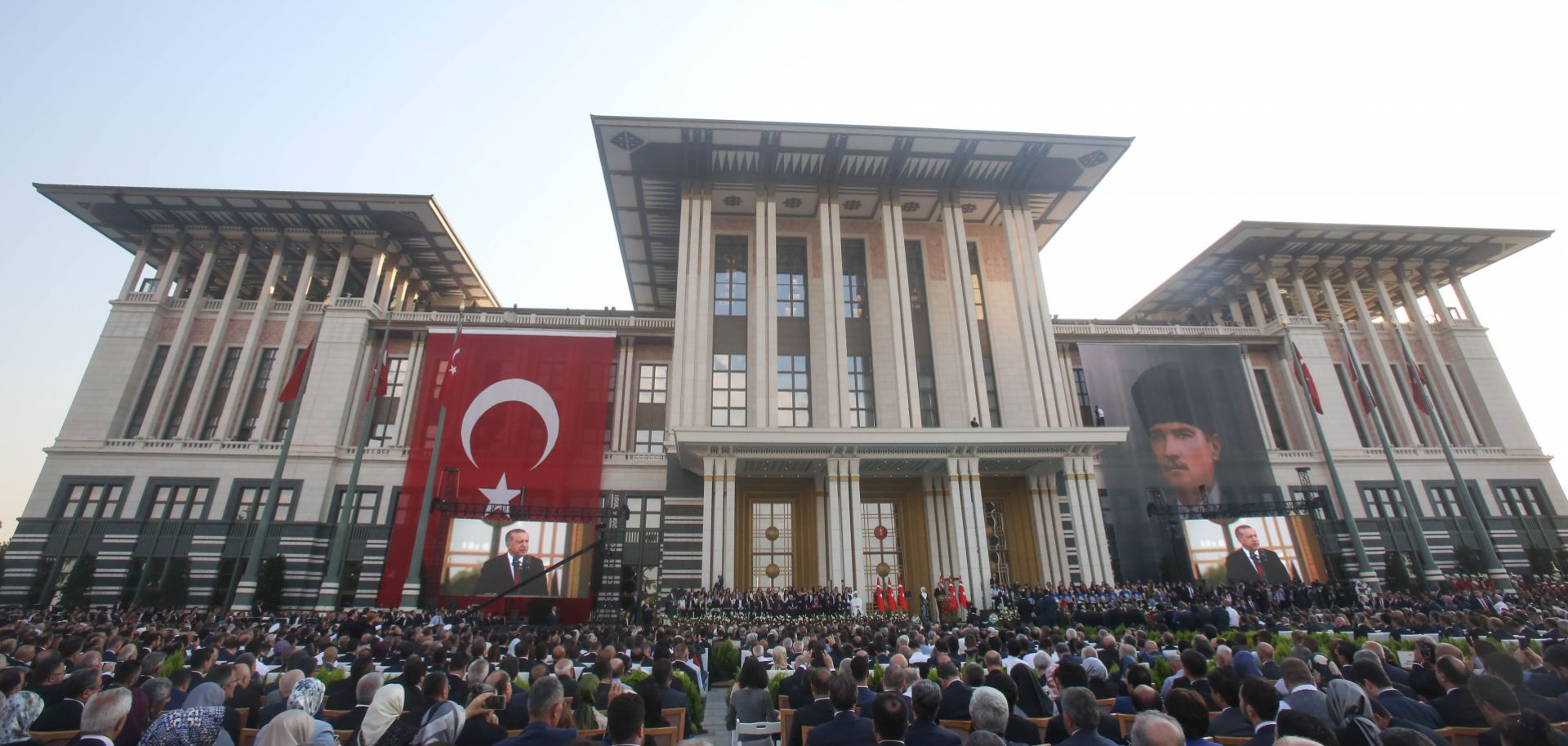GLOBAL PERSPECTIVES
Between the U.S. and Turkey, Andrew Brunson Is Only Part of the Problem

Aug 12, 2018 | 13:00 GMT

Turkish President Recep Tayyip Erdogan addresses the crowd gathered before Ankara's Presidential Palace on July 9, 2018, the day of his inauguration for another term in office. Erdogan's brazen use of imprisoned U.S. citizens as a bargaining chip with the United States has put more strain on the countries' alliance.
(Stringer/Getty Images)
Highlights
- Since the attempted coup against his government in July 2016, Turkish President Recep Tayyip Erdogan has used the arbitrary arrest and imprisonment of U.S. citizens in Turkey as a tool for negotiating with Washington.
- In response, the United States will consider passing more damaging sanctions, in addition to the first wave it imposed in late July.
- The escalating dispute is just one of many issues — including Ankara's plans to deploy the Russian S-400 missile defense system — threatening the United States' alliance with Turkey.
Subscribe Now
SubscribeAlready have an account?
